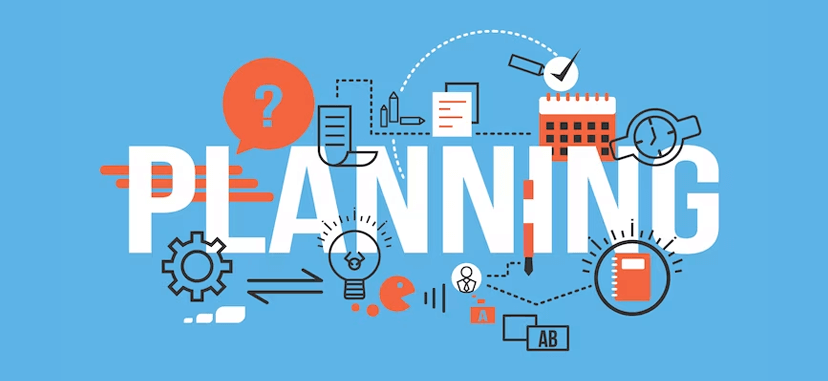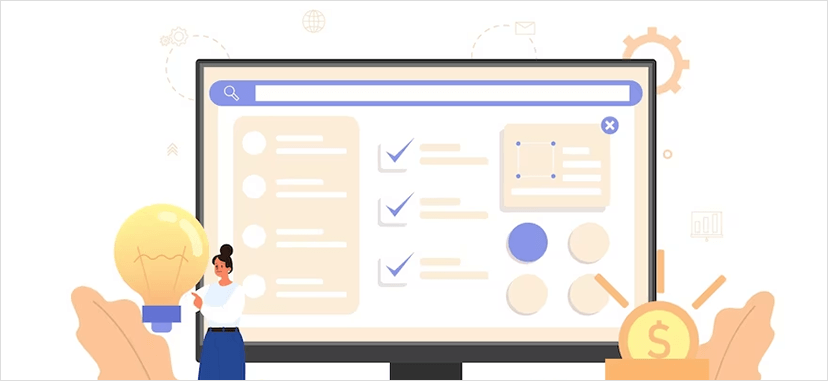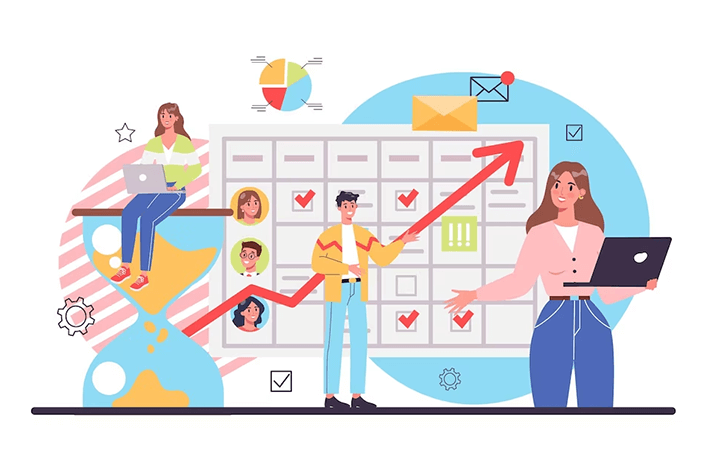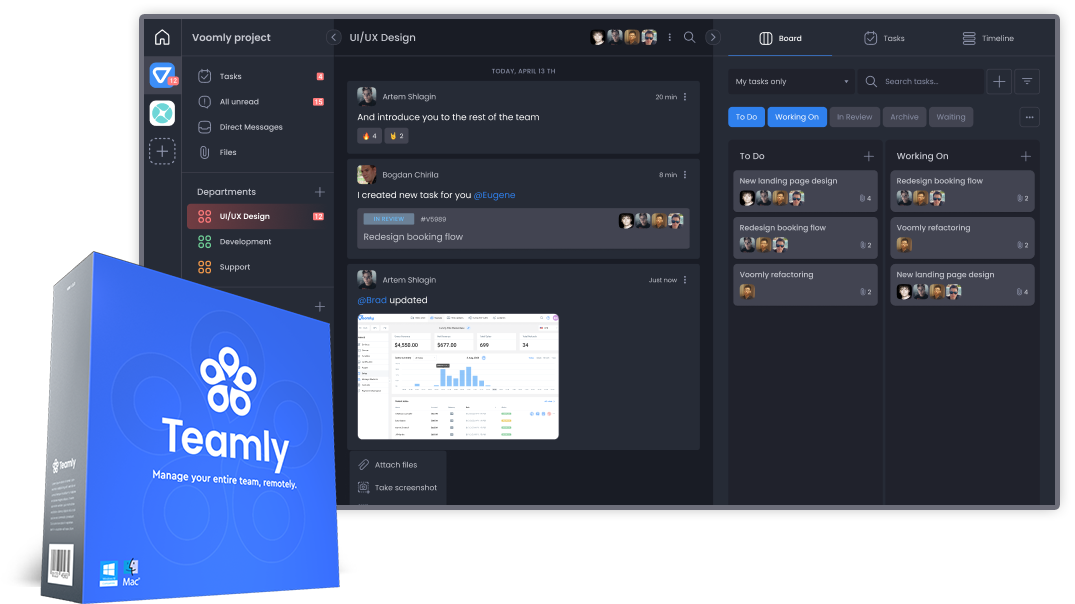
Click the button to start reading
Adapt and Refine: How Progressive Elaboration Can Benefit Your Business
Businesses thrive and survive off the back of effective project management.
Success for companies of all sizes, from small to medium-sized enterprises (SMEs) to solo entrepreneurs, boils down to it. Often working with limited resources, tight budgets, and high stakes, finding the right balance between flexibility and control is crucial.
That’s where progressive elaboration comes in — an approach that can revolutionize your project management style and help your business soar to new heights.
Progressive elaboration is not just another buzzword; it’s a powerful project management technique that adapts to the changing landscape of your project, ensuring that you’re always one step ahead.
In this article, we’ll demystify progressive elaboration, explore its benefits, and offer practical tips on integrating it into your business.
So grab a cup of coffee, sit back, and dive into the world of progressive elaboration and how it can elevate your project management game.

What Does Progressive Elaboration Mean in Project Management?
Progressive elaboration is a project management technique that involves continuously refining and improving project plans as more information becomes available and uncertainties are resolved.
In essence, it recognizes that a project’s scope, objectives, and deliverables might not be fully defined or understood at the outset and may change as the project progresses.
By embracing this uncertainty, progressive elaboration allows project teams to adapt to new information and changing circumstances, ultimately leading to better project outcomes.
Here’s how it works in more detail:
Iterative planning and continuous refinement
At the heart of progressive elaboration lies the concept of iterative planning.
Instead of trying to create a comprehensive and detailed plan at the beginning of a project, project managers and teams using progressive elaboration focus on developing a high-level plan that outlines the project’s overall goals and scope.
This initial plan is then progressively refined and updated as more information becomes available, new requirements emerge, and potential risks are identified.
Continuous refinement is essential to the success of progressive elaboration.
As a project progresses, the team should regularly revisit and revise the plan, adjusting as needed to account for new data, changing conditions, and stakeholder feedback. This iterative approach ensures that the project remains aligned with its objectives and adapts to the dynamic nature of the business environment.
Balancing flexibility and control
One of the primary challenges in project management is finding the right balance between flexibility and control.
While it’s essential to have a structured approach to managing projects, being flexible can help a project’s ability to adapt to changing circumstances or take advantage of new opportunities.
Progressive elaboration addresses this challenge by allowing project teams to maintain control over the project’s overall direction while remaining flexible enough to respond to new information and evolving conditions.
In a progressively elaborated project, the team clearly focuses on the project’s objectives. It continuously evaluates its progress toward achieving those goals.
At the same time, the team remains open to revising the plan as needed and making adjustments to the project’s scope, schedule, or resources to better align with current conditions and stakeholder expectations. This balance between flexibility and control enables progressive elaboration to deliver successful project outcomes in an ever-changing business landscape.

Benefits of Using Progressive Elaboration in Project Management
There are plenty of theories about the best way to run your projects, so what makes progressive elaboration planning so special?
Well, let’s take a look at some of the benefits of this approach:
Improved accuracy in project planning and execution
Incorporating ongoing refinement of project plans leads to progressive elaboration helping teams create more accurate and realistic goals that better reflect the evolving nature of the project.
As new information emerges and assumptions are clarified, the project plan can be adjusted accordingly. This continuous improvement leads to more effective decision-making and improved project execution.
In turn, this reduces the risk of encountering unexpected roadblocks or delays, ensuring that the project stays on track and delivers the desired outcomes.
Enhanced adaptability to changes and uncertainties:
Almost every business faces unprecedented levels of change as the consumer landscape evolves. Factors such as market fluctuations, technological advancements, and changing customer preferences can significantly impact a project’s scope, requirements, or timeline.
Progressive elaboration enables project teams to nimbly respond to new information, shifting priorities, and unforeseen challenges. Embracing uncertainty and adapting project plans as needed helps teams stay ahead of the curve and successfully navigate the complexities of an ever-changing landscape.
Efficient resource allocation and cost control:
Resource management is a critical aspect of project management, especially for SMEs and entrepreneurs who often face budgetary constraints.
Progressive elaboration helps teams allocate resources more efficiently by continuously revising project plans to align with current conditions. An iterative approach allows project managers to identify and address potential bottlenecks, redistribute resources as needed, and optimize task assignments.
As a result, teams can control project costs more effectively, ensuring that the project stays within budget while still delivering the desired results.
Increased stakeholder engagement and satisfaction:
Stakeholder satisfaction is a key determinant of project success. The iterative nature of progressive elaboration encourages more frequent and meaningful collaboration with stakeholders, fostering a sense of ownership and commitment to the project’s goals.
Involving stakeholders in the decision-making process and consistently considering their needs and expectations is an excellent way for project teams to build trust and ensure that all parties are aligned with the project’s objectives. This collaborative approach leads to higher stakeholder satisfaction, better decision-making, and, ultimately, a greater likelihood of project success.
Improved Goal Setting with SMART Criteria:
Progressive elaboration goes hand-in-hand with effective goal setting, which is essential for guiding a project toward success.
One popular method for creating well-defined goals is to use the SMART criteria, ensuring that objectives are Specific, Measurable, Achievable, Relevant, and Time-bound.
- Specific: Progressive elaboration encourages project teams to define clear and specific objectives that address the project’s purpose and desired outcomes. By establishing specific goals, teams can focus efforts and maintain a clear direction throughout the project.
- Measurable: Measurable goals provide a means for tracking progress and evaluating the success of a project. Progressive elaboration enables teams to refine these metrics over time, ensuring they remain relevant and aligned with the project’s evolving objectives.
- Achievable: As project plans are iteratively updated, teams can reassess the feasibility of their goals and adjust them accordingly. This helps ensure that goals remain achievable and realistic, setting the project up for success.
- Relevant: Progressive elaboration helps keep project goals relevant by continuously revisiting and adjusting them in response to new information or changing circumstances. This ensures the project remains focused on delivering value and meeting stakeholder expectations.
- Time-bound: Establishing deadlines is crucial for maintaining momentum and ensuring timely project completion. Progressive elaboration supports creating time-bound goals by enabling teams to refine schedules and timelines as the project progresses, accommodating possible changes and uncertainties.
Incorporating SMART goals into the progressive elaboration process helps project teams set clear, well-defined objectives that can be effectively managed and achieved. By combining the adaptability of progressive elaboration with the structured approach of SMART goal setting, SMEs and entrepreneurs can further enhance their project management capabilities and drive their projects toward success.

Practical Applications of Progressive Elaboration
Now that we’ve looked at the benefits of introducing progressive elaboration planning into your project management, let’s take a close look at how that would work in reality:
Agile methodologies
Progressive elaboration is a cornerstone of Agile project management methodologies, such as Scrum and Kanban.
Agile approaches prioritize flexibility, collaboration, and iterative planning, which are crucial for projects characterized by high levels of uncertainty or rapidly changing requirements.
In Agile environments, progressive elaboration helps teams adapt to change quickly, ensuring they can deliver valuable results and stay competitive in their respective industries.
New product development
New product development is an inherently uncertain process, with requirements and specifications often evolving as customer needs, market conditions, and technological advancements become clearer.
Progressive elaboration equips product development teams to continuously adapt to these changes and refine their plans. As new insights are revealed, teams can adjust the development process accordingly, increasing the likelihood of a successful product launch and achieving a better product-market fit.
Business process improvement
Continuous improvement of business processes is essential for organizations to maintain efficiency and stay competitive. Progressive elaboration can be applied to this ongoing optimization by iteratively refining process maps, identifying bottlenecks, and implementing improvements.
Evaluating and adjusting processes regularly will help organizations increase efficiency, reduce costs, and enhance overall performance, contributing to long-term success.
Change management initiatives
Change management initiatives often entail navigating a complex web of stakeholder needs, resource constraints, and shifting priorities. Progressive elaboration aids change management teams in creating flexible plans that can be adapted as new information emerges or circumstances change.
Enabling teams to adjust their strategies and tactics in response to evolving conditions will see the progressive elaboration strategy increase the chances of a successful transformation, leading to a more resilient and adaptable organization.
Marketing and campaign planning
In the fast-paced world of marketing, trends, target audiences, and competitive landscapes can shift rapidly.
Progressive elaboration allows marketing teams to create adaptable campaign plans that can be refined and optimized as new data and insights become available. This approach ensures that marketing efforts remain focused and effective, maximizing return on investment and helping businesses reach their target audiences more efficiently.
Technology implementation projects
Technology implementation projects, such as software development or infrastructure upgrades, often involve numerous uncertainties and evolving requirements. Progressive elaboration provides a framework for technology teams to manage these complexities by continuously refining their plans and adapting to new information.
This flexibility helps ensure that technology projects deliver maximum value and meet the organization’s strategic goals.
Leveraging the versatility of progressive elaboration will be a key component for helping businesses and entrepreneurs more effectively manage various types of projects, adapt to change, and achieve their business goals in a dynamic and competitive landscape.

How To Implement Progressive Elaboration
If you’re interested in including progressive elaboration in your projects, here are the steps involved:
Setting clear project objectives and scope
The first step towards implementing progressive elaboration is establishing well-defined project objectives and scope. This foundation sets the project’s direction and provides a reference point for future refinements.
To do this effectively, engage stakeholders in defining objectives aligned with overall business goals.
Also, ensure that the project scope is realistic and achievable, considering the available resources, expertise, and time constraints. By establishing clear objectives and scope, teams can maintain focus and make informed decisions throughout the project lifecycle.
Adopting an iterative planning process:
Break down the project into smaller, manageable components and establish milestones and checkpoints to track progress. These milestones will serve as opportunities to review and adjust project plans based on new information or changing circumstances.
Divide the project into smaller parts. Teams can more effectively monitor progress and make necessary adjustments promptly.
Schedule regular meetings or workshops to revisit and update project plans. During these sessions, discuss any new information, priority changes, or unforeseen challenges that may have arisen since the last review.
Use this information to refine project plans, ensuring they align with the project’s objectives and the evolving context.
Incorporating feedback loops and lessons learned
Establish a process for capturing feedback and lessons learned throughout the project. This can include regular team meetings, stakeholder debriefs, or post-mortems after key milestones.
Encourage team members and stakeholders to openly share their insights, ideas, and concerns. Use this feedback to inform future iterations of project plans, promoting continuous improvement and learning.
Fostering a culture of collaboration and open communication
Cultivating a collaborative and open work environment is essential for successfully implementing progressive elaboration. Encourage team members to share their thoughts, concerns, and ideas without fear of judgment or retribution.
Ensure that communication channels are accessible and transparent, facilitating the free flow of information across the team.
Fostering a culture of collaboration and open communication helps to get the best out of your teams. They can better navigate the uncertainties and complexities inherent in projects, leveraging the full potential of progressive elaboration to drive project success.

Types of Progressive Elaboration
Progressive elaboration can take various forms, depending on the project context and specific needs of the organization.
Two common approaches to progressive elaboration are rolling wave planning and prototyping. Each method offers unique advantages and can be particularly beneficial in different scenarios.
Rolling Wave Planning
Rolling wave planning is a technique that involves planning the project in stages, with detailed planning done for the near-term work and high-level planning for future work. This approach allows teams to adapt their plans based on the latest information and changing circumstances, ensuring that the project remains relevant and responsive to evolving needs.
Key features of rolling wave planning include:
- Incremental Planning: Teams plan the project in increments, focusing on detailed planning for the immediate future while maintaining a high-level view of the overall project.
- Adaptable Schedules: As new information becomes available or circumstances change, teams can adjust their schedules accordingly, ensuring the project remains on track and aligned with its objectives.
- Flexibility: Rolling wave planning encourages a flexible approach to project management, allowing teams to respond to changes and uncertainties more effectively.
Prototyping
Prototyping is another approach to progressive elaboration that involves creating a preliminary version or model of a product, process, or system to test its feasibility, functionality, and performance. This approach allows teams to learn from their mistakes, refine their designs, and iteratively improve the final product or solution.
Key features of prototyping include:
- Iterative Development: Teams create multiple iterations of a prototype, refining the design based on feedback and lessons learned from previous versions.
- Early Feedback: Prototyping enables teams to gather valuable feedback from stakeholders and end-users early in the project, helping to identify potential issues and opportunities for improvement.
- Risk Reduction: By testing and refining prototypes, teams can reduce the risks associated with launching a new product, service, or system, ensuring a higher likelihood of success.
- Enhanced Collaboration: Prototyping encourages collaboration among team members and stakeholders, fostering a shared understanding of the project’s goals, requirements, and constraints.
Both rolling wave planning and prototyping are effective methods for implementing progressive elaboration in project management.
Choosing the appropriate approach depends on the nature of the project, the organization’s needs, and the specific challenges that the team faces. Organizations can better manage the uncertainties inherent in projects and drive them toward success by leveraging these processes.

Examples of Progressive Elaboration by Industry
Many industries could benefit from adopting an agile progressive elaboration approach to their business.
Here are some of the industries that have substantial uses cases:
Software Development
In the software development industry, progressive elaboration is often used in Agile methodologies like Scrum and Kanban.
Developers create a minimum viable product (MVP) in the initial stages and iteratively enhance it based on user feedback and market requirements. By incorporating new features, fixing bugs, and optimizing performance over time, the software product becomes more refined and better suited to user needs.
Construction
In construction projects, progressive elaboration can be employed during the design and planning stages.
As more information becomes available or requirements change, architects and engineers can modify the designs and construction plans accordingly. This flexibility allows for more accurate cost estimation, better resource allocation, and a smoother construction process.
Marketing Campaigns
When launching a new marketing campaign, progressive elaboration can help optimize the campaign’s effectiveness over time.
Marketers can start with a basic campaign concept and then iteratively refine the messaging, creative assets, and targeting based on the performance data and audience feedback. This approach allows for more effective marketing strategies and better return on investment (ROI).
Event Planning
For large-scale events such as conferences, trade shows, or festivals, progressive elaboration can be a valuable tool in the planning process.
As the event date approaches, organizers can continuously refine the event schedule, logistics, and promotional activities based on new information, feedback from stakeholders, or changes in circumstances. This iterative approach enables more efficient event management and enhances the overall event experience for attendees.
Research and Development (R&D)
In the R&D process, progressive elaboration can be applied to the development of new technologies or products.
Researchers can start with a basic concept or prototype and then iterate upon it based on the findings from their experiments and testing. This approach allows for more informed decision-making and reduces the risk of costly failures, leading to more successful innovations.
Final Thoughts
Progressive elaboration is a powerful and flexible approach to project management that allows businesses to adapt and refine their projects over time. For all kinds of companies, it offers a practical and effective way to manage projects in a fast-paced and ever-changing environment.
Remember, project management is not just about achieving the desired outcomes but also about learning from the process and continuously improving.
So, embrace progressive elaboration and enjoy the benefits it brings to your business!
















